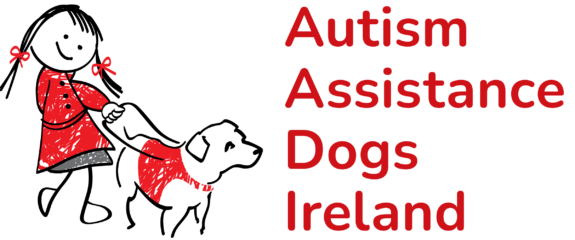Public Access Rights
Please note that Educational Assistance Dogs do not possess the same public access rights as Assistance Dogs. Therefore, they cannot be brought into shops, buses, or other public places.
Selection & Training
Each Educational Assistance Dog is carefully selected and fully trained to work in educational settings. Each dog completes comprehensive obedience training, is well-socialised, and is gradually introduced to the school environment and interactions with children. Their calm temperament and gentle nature make them ideally suited to supporting students and staff alike.
Benefits of Educational Assistance Dogs
Having an Educational Assistance Dog in your school offers numerous benefits, including:
- Improved Attendance and Engagement: Students are more willing to participate in classroom activities.
- Calming Effect: The presence of the dog significantly reduces stress levels, especially for students with behavioral or learning difficulties.
- Enhanced Social Interaction: Students are encouraged to participate and interact within groups, fostering a shared interest.
- Educational Motivation: Students learn about dogs and appropriate behavior around them.
- Supportive Presence: The dog provides comfort without requiring students to speak or make eye contact, easing anxiety.
- Autism Awareness: Promotes acceptance of students with additional needs.
- Inclusivity: Demonstrates the school’s commitment to being an inclusive community.
Role of the Educational Assistance Dog
The Educational Assistance Dog will work alongside designated teachers and Special Needs Assistants (SNAs). Initially, the dog may attend school 3 days a week, with the possibility of increasing to 5 days once the dog has settled comfortably.
The dog will have a structured timetable and may move between classes depending on the needs of the school (primary or secondary).
Handler Training and Responsibilities
Each school must appoint 2–3 handlers (teachers/SNA’s) including the primary carer to support the dog during the school day.
All handlers will receive training in:
- Positive reinforcement-based dog handling
- Recognising signs of stress in dogs and how to respond appropriately
- Proper handling techniques to ensure the dog’s wellbeing in a school environment
The primary carer of the dog is required to attend a 3-day training course at our centre in Little Island, Cork, once a dog has been matched to the school.
School Responsibilities
What is expected of the school?
- The Board of Management is fully informed and supports the application.
- The dog must be included in the school’s public liability insurance.
- A designated toilet area on school grounds must be provided.
- A safe, quiet space must be available in the school for the dog to rest.
- Consideration must be given to students with allergies or fear of dogs.
- A 3-day training course will be held in Little Island, Cork for matched schools. Attendance (including overnight accommodation at own expense) is mandatory.
- Designated handlers may require time away from their usual duties to accommodate the dog’s integration and training at school.
- The school must plan for ongoing costs, such as food, insurance, and veterinary care.
Applicant/Main Carer Responsibilities
The primary carer of the dog must meet the following conditions:
- Must have a permanent role within the school.
- The dog must live indoors at all times and not be left outside.
- The dog must not be left alone for more than 3 hours.
- The carer must have an enclosed, dog-proof garden.
- The dog must receive appropriate daily exercise.
- The carer is responsible for the dog’s health and welfare, including:
- Keeping vaccinations up to date
- Monitoring for signs of fatigue or illness
- Ensuring the dog has time to rest after the school day
- Having a contingency plan for days when the dog cannot attend school
- Keeping vaccinations up to date
How To Apply
These highly trained and effective dogs cost €15,000 for training and maintenance. While the cost is significant, the benefits of School Support Dogs are immeasurable.
In order to ensure that Autism Assistance Dogs Ireland is able to continue to provide these special animals to schools across the country, we ask that beneficiary schools actively support this critical programme by hosting at least two fundraising events per year for the working life of the School Support Dog. Without this support, our programme would not be sustainable.
